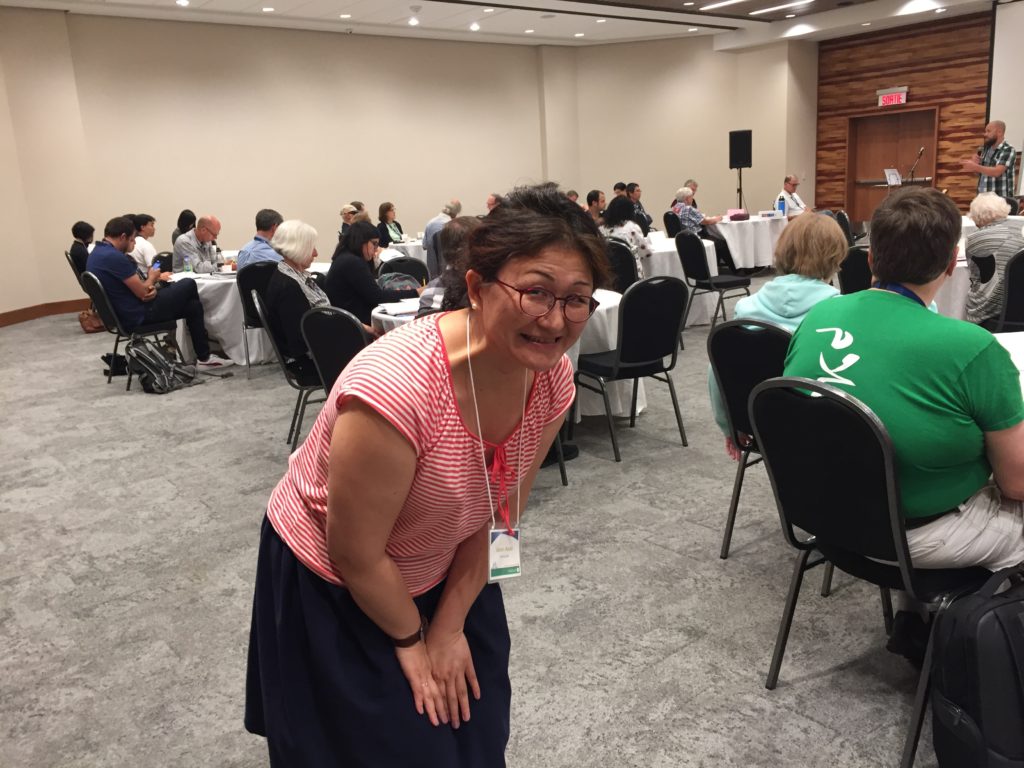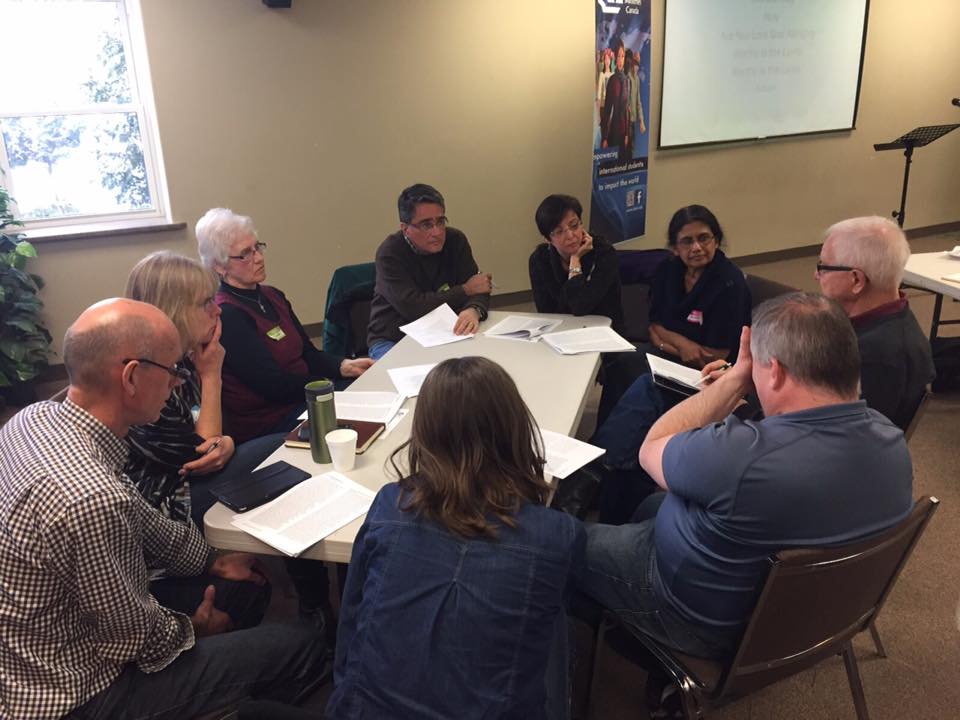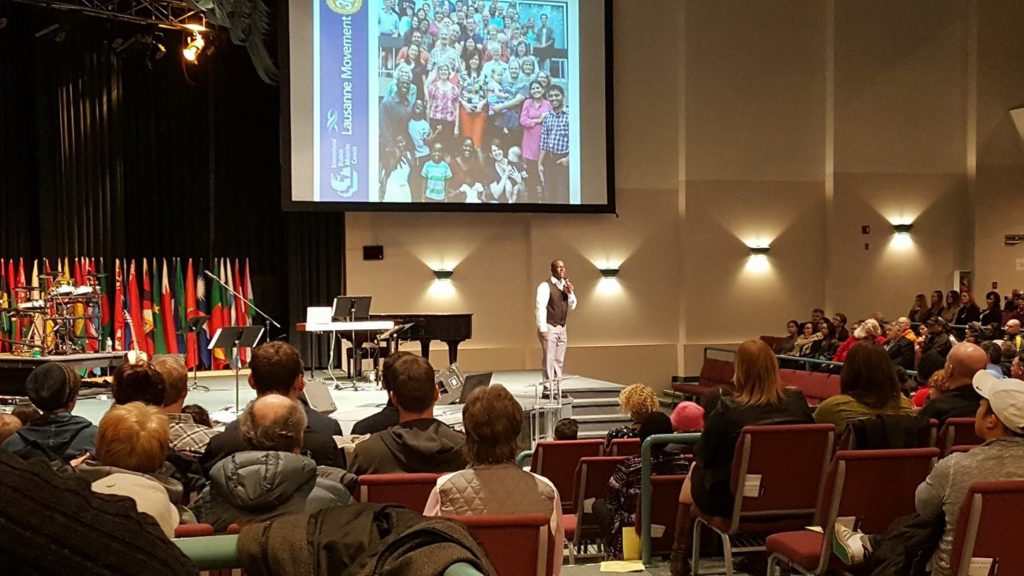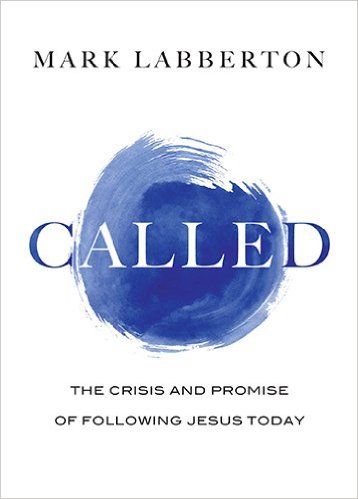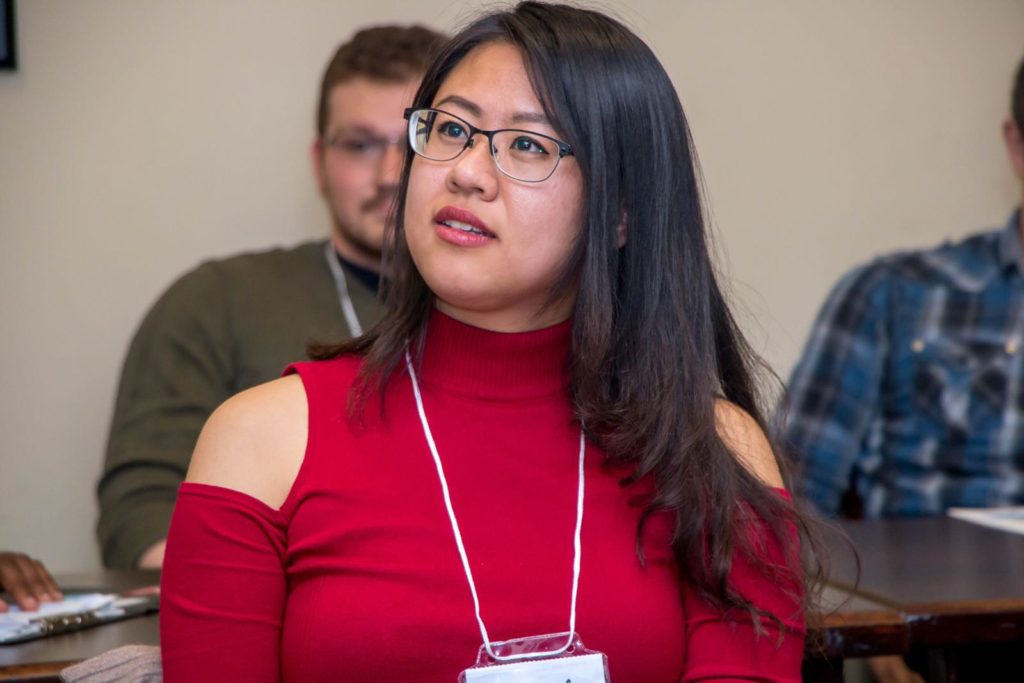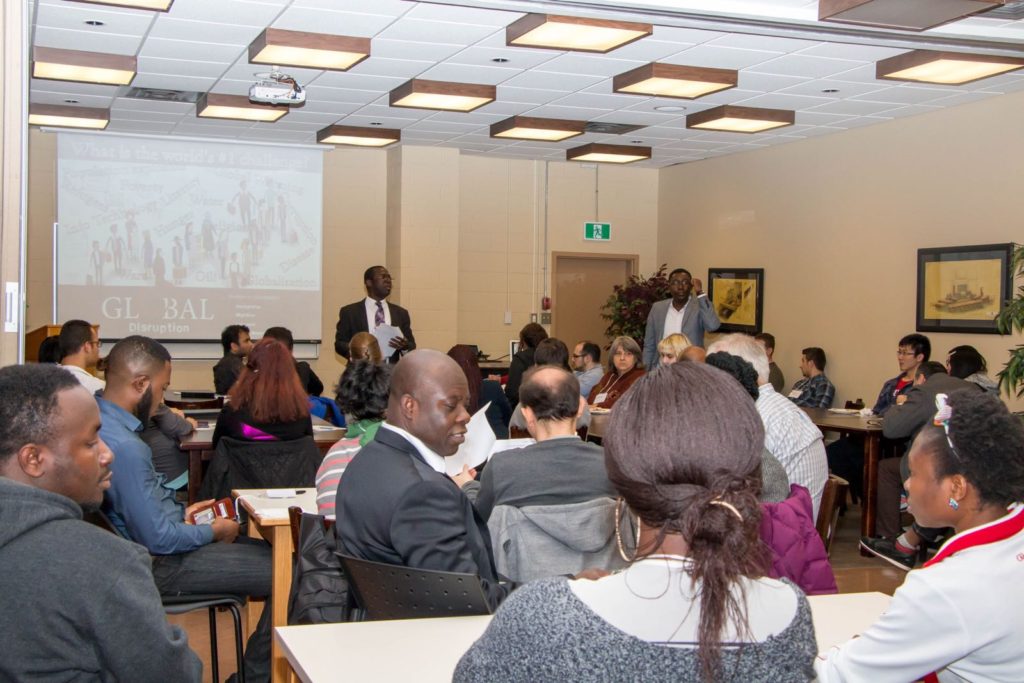CONFESSIONS OF THE CALLED (#5): Convocation at the Table of Vocation
To be a stable entity one needs to get rid of a one-track mind that calling is just one thing and embrace at least four kinds of vocations, just like the legs of a four-legged table.
It was not until my university days that I clearly heard and understood that I had a unique and specific God-given calling in this life. The excitement of that threw me into an extreme mode where I sought that one and only specific vocation my Creator had for my life. If you’ve been following this Confessions of the Called series, you will know that a lot of my one-track perspective has changed. I now see at least four kinds of callings each of us have, and like the legs of a four-legged table, you just might topple without any of the legs:
1. Human calling.
Our first call is to be human beings (Benner 2015, 87). Personally, I find that I have been so much in a hurry to live out the next call below, the Christian call, that many times I have neither accepted my own humanity let alone that of another. I’m often in a hurry to deal with myself and people as Christian/non-Christian than first of all, as simply human. This is where you can love someone, even an enemy, simply because they too are human—made in God’s image.
2. Primary/General calling.
You may call this the Christian calling. This is basically the primary vocation of having been called by God himself in love to love God and love our neighbour as Christ-followers. The first few blogs in this ‘Confessions of the Called’ series have all been about how foundational and essential this is, before we attempt our secondary call.
3. Secondary/Specific calling.
Based on how God has uniquely wired us with gifts, passions, capacities, experiences, circumstances etc. we can discern through observation, prayer and counsel what specific vocation we may have, since no one else on the planet has our unique fingerprint.
Let me say here, another confession, that unlike the one-track-purpose-for-life that I used to think everyone had, there may be some of us who are called to a patchwork of callings. Perhaps no one captures it better than this English professor at Calvin College, Debra Rienstra (2005, 221-22):
“Some people’s passions are obvious, and God leads them through those passions into a single path of service. Mother Teresa, for example, or the lifelong kindergarten teacher, or the musician who offers his skillful playing every day for God’s glory and other people’s joy. Others, like me, have less obvious passions: what gives the energy develops over time or remains partially hidden or blooms suddenly in response to new situations. As a result such people offer an assortment of odds and ends as service: a regular job done with integrity, some volunteer work, a career decision that seeks service over money and prestige, kindness to neighbors, maybe a late-life passion for going on mission trips or teaching teenagers appliance repair. Their lives may not have the clean simplicity of vocation, but at the center of everything they do is a deep love for God—and that is everyone’s true vocation.
“I’ve learned that God treasures the lives made of a single piece of cloth, cut in the shape of service. But God also values the lives that look more like a bag of fabric scraps, some big pieces, some tiny pieces, different colors and weaves. At each stage in my life, with each piece of it, I try to ask God, “How can I offer this to you?” I have to trust that if I offer all the odds and ends of my life, God will stitch together the pieces in some lovely pattern and receive it as my gift.”
4. Immediate calling
This last one I gleaned from Gordon T. Smith’s Courage and Calling: Embracing Your God-given Potential. It brought such a sense of peace to me as I tend to be very futuristic and ‘big dreamy’ in my approach to life thus find little, urgent things like changing a diaper or taking my wife grocery shopping quite interrupting and irritating. Immediate calling means God invites us to be responsible with the present demands and tasks of our lives (Smith 1999, 10).
“And we know that God causes everything to work together for the good of those who love God and are called according to his purpose for them”—human, primary, specific, immediate callings. So come to the table just as you are, right where you are, right now. Relax. God’s got this.
Works Cited
Benner, David G. 2015. The Gift of Being Yourself: The Sacred Call to Self-Discovery. Downer’s Grove, IL: InterVarsity Press.
Rienstra, Debra. 2005. So Much More: An Invitation to Christian Spirituality. San Francisco, CA: Jossey-Bass.
Smith, Gordon T. 1999. Courage and Calling: Embracing Your God-Given Potential. Downer’s Grove, IL: InterVarsity Press.
CONFESSIONS OF THE CALLED (#4) : Don’t try this alone!
When it comes to calling/vision, I used to erroneously say things like, “Don’t listen to what other people have to say. After all, they weren’t there when God spoke to you.” How wrong I was. I repent.
“TO BE OR NOT TO BE?”
As I celebrated my birthday last week somehow I found myself going through some old emails dating back to 2008. I almost got ordained as a pastor that year. Almost. God spared me inflicting this upon myself… and on y’all 🙂
Back then I was still practicing medicine as a military captain with the United Nations Operation in Cote d’Ivoire and had survived a fatal road traffic accident, in which I lost two of my colleagues, barely three weeks into our peacekeeping operation. The miraculous circumstances surrounding my deliverance convinced me beyond any shadow of doubt that GOD had spared me, yes, but for a purpose beyond Medicine. I wanted to give the rest of my life totally to the preaching of the good news and the good life in Jesus Christ and raising younger leaders to do same. If my fervour for God and His kingdom had been a 7/10, it cranked up to 9.5/10 after the accident. Understandably, after such a near-death experience I became crazier for God, with white-hot intensity and with such a sense of urgency about life and mission.
In the midst of all the crazy schedule of doing my medical and military duties for the U.N., I would go to the Universite de Bouake at least twice a week to teach, go into the community to minister–like visiting someone the rebels had captured and jailed, seeing to the total transformation of the dignity of Salimata (picture on left) by getting her dentures, raising capital for business for an AIDS patient etc.
My favourite thing was to preach during our Ghanmed 5/Ghav 10 church services and at local churches. It is little wonder then that the head pastor of one of these churches strongly felt I should be officially ordained as a pastor. After all, I was doing the work anyway—perhaps even better than those who had the official recognition as such.
Everyone was excited—from my Commanding Officer to ‘the least of these.’ A date was set, preparations and decorations were made; my clerical collar (that stiff, white dog collar that reverend ministers wear) was procured, my measurements were taken for my special-collared shirt to go with it… refreshments for the party…
Everyone (and everything) was ready except the most important people in my life: my wife, my best friend and one of my pastors. It is their emails I referred to earlier. These three people had no doubt God’s hand was upon my life and that God had a calling for me but none of them was convinced it was either the time or the place for ordination as a pastor. I was deeply conflicted. On hindsight, they saved my life—and by extension, that of many people.
I must confess I’m a skeptic when it comes to Western Christians’ understanding and practice of anything communal. Unfortunately having been schooled in Western ways and lived in North America myself I have become even more individualistic than my home (African) culture. So I longed for a breath of fresh air when I picked up Mark Labberton’s book, Called, but I was cautiously optimistic. “What does an American writer, from a generally individualistic society, have to authentically and practically offer toward communal calling?” I wondered. I was not disappointed.
The author not only clearly agreed with my observation about individualism but also my concern regarding how community is needed to accurately decipher a call of God on one’s life: “Community should be a natural cornerstone of life as a Christian disciple; we’re meant to be a part of the community of God’s people. After all, Christian disciples can’t live faithfully by themselves, and we seldom hear the call of God alone. Biblically, the call of God is inextricable from the community of God’s people, yet the church in the United States is rife with evidence that the church seeks and avoids community, just like the culture around it” (80).
DON’T TRY THIS ALONE
“We seldom hear the call of God alone?” Wow! Indeed, this is the way Sherwood Lingenfelter puts it in his work, Leading Cross-Culturally: “To have effective, compelling vision for ministry, the kind of vision that will motivate people to follow, the Christian leader must have a deep and intimate walk with Christ and listen to and be filled with the Holy Spirit. But even more importantly, this vision must be tested in the community of the body of Christ, refined by the participation of the body in shaping it, and then mobilized by the body in prayer and action.
Back to Labberton: “The process of understanding the Spirit’s guidance is best done in community. It isn’t a private act of discernment but one that emerges as we live in relation to brothers and sisters who help lead us to listen to our own hearts and to listen for God’s. To do so wisely and not self-servingly or distortedly, we need friends in Christ who share in this process of listening and trusting. Together we are the dwelling place of the Spirit” (140).
Oh! How many people, especially young people, would’ve saved themselves, and myriads more, heartaches, disillusionment and destruction had they tested their ‘calling’ in the crucible of community. Man, don’t try this calling thing alone without a discerning community. And community is “where two or three come together in Jesus’ name.” That may very well be just you and your spouse. If I sense a ‘call from God’ that my born-again, Spirit-filled wife strongly disagrees with I will have to take a serious pause for profound prayer and further consultation. And how much better when my spouse, plus my accountability friend and my spiritual director are all in sync!
Strong ‘Type A’ personalities like me find this assertion that calling is best discerned in community very hard. But that is the way to go, God’s way. I’m eager to share what else God’s word, Labberton and others have to say about this in my next blog. For now, go ahead and tell me what you think so far.
CONFESSIONS OF THE CALLED (#3): One more reason why reversal is suicidal
An immediate advantage I perceive in all of us clearly seeing and understanding that the first and most important, albeit general, call is to love God and people is how that takes away the pressure (and guilt too) that many of us feel to not only find God’s specific will for us, but even to be “in the centre of God’s perfect will.” Phew! Labberton is spot on here, that “Without any special guidance from the Holy Spirit, with no anxiety or worry, and with utter confidence, we can daily pursue these first things as our primary vocation.” Amen!
We already started talking about why reversal of first things (primary, general purpose) and next things (specific, unique purpose) is suicidal. Here are the three reasons I enumerated. We:
- miss the point
- miss the priority
- miss the person
The first two were dealt with in my last blog; I saved the best for last.
MISSING THE PERSON (IDENTITY CRISIS)
When we get so focused on a specific calling to be a teacher or carpenter or whatever, we tend to lose our primary identity as beloved children of God and rather define ourselves by what we do. We are not our jobs; we are bigger than that. In other words, we set ourselves up for an identity crisis when don’t get our primary purpose going first—and going well, for that matter.
Labberton puts it this way: “This is a classic tangle and fails to give full weight to what really matters most. So we go to work and forget or neglect who we are, and what our life is really about, how we seek to love and serve. We enter the subculture of our activities, and soon that reality begins to define and shape us, rather than the other way around” (89).
THE THREAT AND STRUGGLE IS REAL
I remember both the crisis and promise of being a new immigrant in Canada and the constant temptation to prove myself, especially as a minority (black man) financial advisor in an Anglo-dominated arena and having to meet certain quotas in order to win recognition, awards and to be regarded as among the elite. One day, I was both inspired and compelled to augment my personal mission statement with the following: “I am who God says I am irrespective of what I do/don’t do; irrespective of what I have/don’t have.” I still have that as part of my personal mission statement.
Have you noticed that the first two of Jesus’ three temptations were go get him to “do something” to prove his identity? “If you are…then…” What a sharp contrast with the heavenly Father’s affirmation of him just a few verses earlier during his baptism: “This is my Son, whom I love; with him I am well pleased.” Up until then Jesus had done ‘nothing’ but obeyed his Father’s will. One would even wonder if he had yet ‘found his purpose.’ This was not God’s beloved preacher or teacher or carpenter… just His beloved Son. Period!
“Our first vocation is to be the beloved. The primacy of God’s unearned love alone makes this possible. We live as the beloved, the treasured. This vocation is pure gift….” says Labberton.
I find Henri Nouwen’s 17-minute expose on “Being the Beloved” so straight to the heart. You might find it reassuring too. Watch here.
Why are we so concerned about what we do when everything first flows from who we are. It’s become cliché now that “after all, we’re human beings not human doings” but we still live like the latter, don’t we?
In Called, my seminary President is emphatic: “We start recovering our call when we learn which first things are first. The love of God in Jesus Christ is the supreme first thing; no one and nothing rivals or surpasses this. If we want to know ourselves and why our life matters, the Bible’s advice is to know our Maker, who knows and loves us fully.”
And then he beautifully continues thus, “We matter, and our calling matters, not because we’re the supreme test of anything but because we exist for the joy and satisfaction of our Maker, whose love alone enables us to flourish… Our vocation will involve work and labor, and that has its meaning and value. But we are “very good” in God’s sight because of bearing God’s image—not because we are fruitful and multiply (Genesis 1:28) but just because we are.”
TIME TO RECALIBRATE
When helping people to find their specific, God-given purpose a very useful tool (learnt from Rick Warren) has been to help them discover their SHAPE: Spiritual gifts, Heartfelt passions, Abilities (talents), Personality and Experiences. This is wonderful! However, again, the danger of reversal of first things is this: “If we try to settle the issues of calling through the lens of our strengths and weaknesses, our preferences and dreams, we will be prone to overreach (because we make ourselves and our desires the ultimate measure) or underreach (because we’re willing to allow ourselves or someone other than God to tell us who we are). Over the course of our lives, neither works well or leads us to the truth.” (Labberton) And that, my friend, is suicidal.
In conclusion, “This is, of course, why Christians believe that coming to faith in Jesus Christ matters so much—not because it’s like handing out a “get in heaven free” card, but because it’s like offering an invitation to know yourself through the love of God in Jesus Christ, a gift that will change how you understand your identity and therefore how you live both now and in eternity. Knowing ourselves and knowing God are inseparable” (Labberton).
I love Eugene Peterson’s translation of Ephesians 1:11: “It is in Christ we find out who we are and what we’re living for.” May I dare even rephrase this as, It is in Christ we find out we we are THEN what we’re living for? Not getting this first thing first messes up everything; E-V-E-R-Y-T-H-I-N-G!
CONFESSIONS OF THE CALLED (#)2: Why Reversal is Suicidal
RESETTING THE STAGE
So Mark Labberton, author of Called, argues that Jesus’ two-word directive, “Follow me,” is the primary call that creates and defines our vocation (Labberton 2014, 9). While this seems basic it is quite revolutionary. This is not the approach or content I had anticipated from the title of the book. The heart of God’s call is this, Labberton seems to proclaim, that we receive and reciprocate the love of God for us—directly back to him first and indirectly to our neighbour. Indeed Jesus, quoting from to the Torah, made it clear that the greatest commandments are to love God and love people, period! This is our primary twin-call.
And I happily accept that. I also concur that whether or not we’ve discovered any specifics to our purpose in life we should live out this first thing. We even agree that this specific, unique God-given purpose should be “aspects of our call [that] assume first things but then move us in particular contexts of work or ministry, of friendship or marriage, of service or advocacy, of imagination or analysis. The next things may take the form of jobs (and often do), or they may be acts of volunteer service. This is where the convergence of gifts, talents, education, opportunity, passion and more draw us towards jobs or service that can seem deeply rewarding.”
When it comes to the specifics, however, I believe that Jeremiah was not an exception; that God saying of him that He knew him and fashioned him in the womb for a specific purpose applies to each of us too. Otherwise, for instance, why do each of us have unique fingerprints?
So yes, I grapple with my seminary president’s assertion that “Beyond these first things, God [only] sometimes has next things” because I still believe he always does for everyone. That notwithstanding, I immediately see the dangers he points out of not keeping first things first (pursuing our primary call of loving God and loving people) and rather seeking custom-made next things first. Reversal of first things and next things is not just counterproductive in the end; I dare say it is even suicidal. Here are three reasons why (which I’ve summarised and coined in my own typical alliteration fashion). We:
- miss the point
- miss the priority
- miss the person.
I will dwell only on the first two dangers here (in order to keep this blog short and sweet) and highlight the last one (potentially the worst; and the lengthiest) in the next installment, DV.
1. MISSING THE POINT
We are not here for us—we are here to please/glorify God and bless humankind. What is the point if we discover that we are uniquely shaped to, say make music, and yet end up using it in a way that offends our creator and/or exploits our fellow human beings? There are many celebrities who have obviously discovered their gifts and talents (specific God-given purpose, if you like) but who are still far away, so far away from their primary call to love God and people, or in the words of Jesus, “Follow me.” What if even our ‘calling’ or ‘career’ now rivals our primary love for God?
I think of many people who say they’ve discovered their calling, let’s say to be medical doctors, but whose attitudes stink—are they really living out their God-given purpose then? How about the one who is an obviously gifted public servant and yet is corrupt to the core? Does she not make a mockery of her primary purpose in the midst of executing her specific, secondary call? What’s the point?
On the other hand, “If we embrace and practice our primary calling to live as followers of Jesus,” Labberton posits, even “in the most practical and ordinary contexts of our lives, the meaning of our secondary call will more likely occupy its appropriate place and will bear the weight and priority that is formed by what matters most” (169).
Again, “If and when we come to a particular setting or work that especially suits the way we’ve been made or to work on the concerns or passions we want to give our strengths and energies to, we bring to those settings far more of what they need than just good talent or interest. We bring something of the kingdom” (170).
2. MISSING THE PRIORITY
First things trump everything. As Labberton puts it, “In Scripture, God seems far more passionate about first things—how we live and love and our neighbor—than about next things—what our set of daily tasks is. At the same time, it’s clear how we love him and our neighbour by how we demonstrate that in the context of our daily relationships and tasks. This is where the ordinary joy and rub of Christian discipleship are meant to be lived out. We live out the extraordinary call of following Jesus (first things) right in the midst of the ordinary actions of daily life (next things).”
In other words, in the grand scheme of things, someone who hasn’t discovered their specific, unique God-given purpose but is loving God and neighbor in whatever ‘mundane’ tasks in life is making the mark in God’s eyes while the one with the perfect skill set in the most fulfilling profession but missing first things may end up with the short end of the stick like the scenario Jesus describes at the final judgment when many will come and say, “Lord, Lord, did we not prophesy in your name and in your name drive out demons and in your name perform many miracles?” Remember the Lord’s response to such who missed first things even though they did next things? “Then I will tell them plainly,” he says, ‘I never knew you. Away from me, you evildoers, you law breakers, you workers of lawlessness!’
Does anyone need any further convincing that missing the point of purpose and missing God’s priority in the chase after next things are suicidal? The third danger, why reversal is suicidal, I find even more fundamental than these other two but tell me what you think so far.
TO BE CONTINUED…
CONFESSIONS OF THE CALLED (#1): “Honey, I Think we Overdid it”
Of course ‘everyone’ wants to know, “why on earth am I here?” Why else would authors sell a tonne of books on that! But as I discover more about this valid existential question, some of my strong views and approaches to the whole issue of purpose/calling are being challenged and changed. This is a series of reflections and confessions of such.
“MR. KNOWS IT ALL”
Yes, I’m headstrong and very passionate about the things I’ve come to know, understand and believe. Yet my inner circle will also tell you that I’m not afraid to say “I don’t know;” neither am I ashamed to say “I was wrong.”
In fact, long before the term “paradigm shift” became cliché, I remember running seminars for young people, even 15 years ago, and challenging them thus: “if you come into contact with new information which makes you realize that a particular way you’ve been thinking and living has been making you ineffective, SHIFT YOUR PARADIGM!” Up to this day, my wife, Anyele, reminds me that at that moment, I will characteristically jump from one spot of the room to another, to illustrate my point.
Come on, after all, “we live and learn.” Did not some wise Greek philosopher once say something like “I know one thing; that I know nothing”? Even Albert Einstein is quoted as stating, “The more I learn, the more I realise how much I don’t know,” an obvious remix of Aristotle’s “The more you know, the more you know you don’t know.” So congratulations if you know it all 🙂
In the next few weeks, I want to humbly acknowledge a few mistakes and missteps of mine regarding the whole idea of calling or vocation. In a series I’m calling “Confessions of the Called” I will basically share some further enlightenment I’ve received, particularly based on the work of my seminary president, Mark Labberton, in his book Called: the Crises and Promise of Following Jesus Today (2014).
In this book, Mark Labberton attempts to paint two pictures. First, a dull one of the current states of the world and the church and then a brighter picture of the ideal—what could and should be. The first third of the book summarises well “the crises and the promise of following Jesus today” and then for the next three chapters reboots paradigms about where, how and to whom/what we’re called, finally showing the way forward in the last chapters.
Having been a student and teacher of purpose/calling for the last 15 years I seem to think I’ve learnt almost all I need to know about the subject. I was curious to know if Labberton had anything ‘out of this world’ to add to my knowledge and experience. Thus the question I had in mind when I started reading this book proactively was, will I really learn anything totally new about calling than I already do?
BACKGROUND TO CONFESSION
A decade-and-a-half ago, when a bunch of us set out to start the WannaBe Institute, which later metamorphosed into The HuD Group, we were bent on “inspiring and empowering young people to discover their God-given purpose and reach their full potential.” That still remains the core of what we do although the mission has expanded beautifully into God’s grander purpose for leadership and mission in over a dozen countries.
I was personally sick and tired of young people sitting around purposelessly not realising that they were not a mere accident but an intentional creation of a very personal God who had a very specific purpose for their lives. We’ve since taught thousands of people how to find their specific God-given purpose in life, and write personal mission statements, especially by looking through the lens of the manufacturer’s manual (the Bible) and how they’re wired.
NOW, TO CONFESSION #1
I am sad to say that in my overdrive to help many emerging leaders quickly find their specific God-given purposes for their lives—to become “meaningful specifics” rather than merely “wandering generalities”—I inadvertently got blindsided from adequately pointing them to and thoroughly addressing their primary call. I have been too eager to move to “next things” (as Labberton puts it in his book), even putting “next things first” sometimes. I remember saying to my wife, Anyele, a couple of mornings ago, “Honey, I think we’ve overdone it.”
As I read Labberton’s book, it became obvious that my paradigm of calling is exactly the opposite of Labberton’s (and we just might both be coming from two extremes and need a “radical middle” as my Vineyard friends oxymoronically put it). This is how Mark states his perspective of calling: “Beyond these first things, God sometimes has next things” (emphasis mine). “Only sometimes?” I thought in bewilderment.
This is a radical thought for me. I sure do affirm the general purposes of God for our lives, the primary purpose of loving Him and our neighbour, but quickly move on to what I consider the ‘main thing’, which Labberton calls a temptation, finding God’s specific purpose for one’s life assuming everyone has this, always. I am considering writing to the author about my struggle.
Let me tell you why Mark Labberton thinks my specific approach hitherto is dangerous. TO BE CONTINUED…
Will you share your thoughts so far with me?

